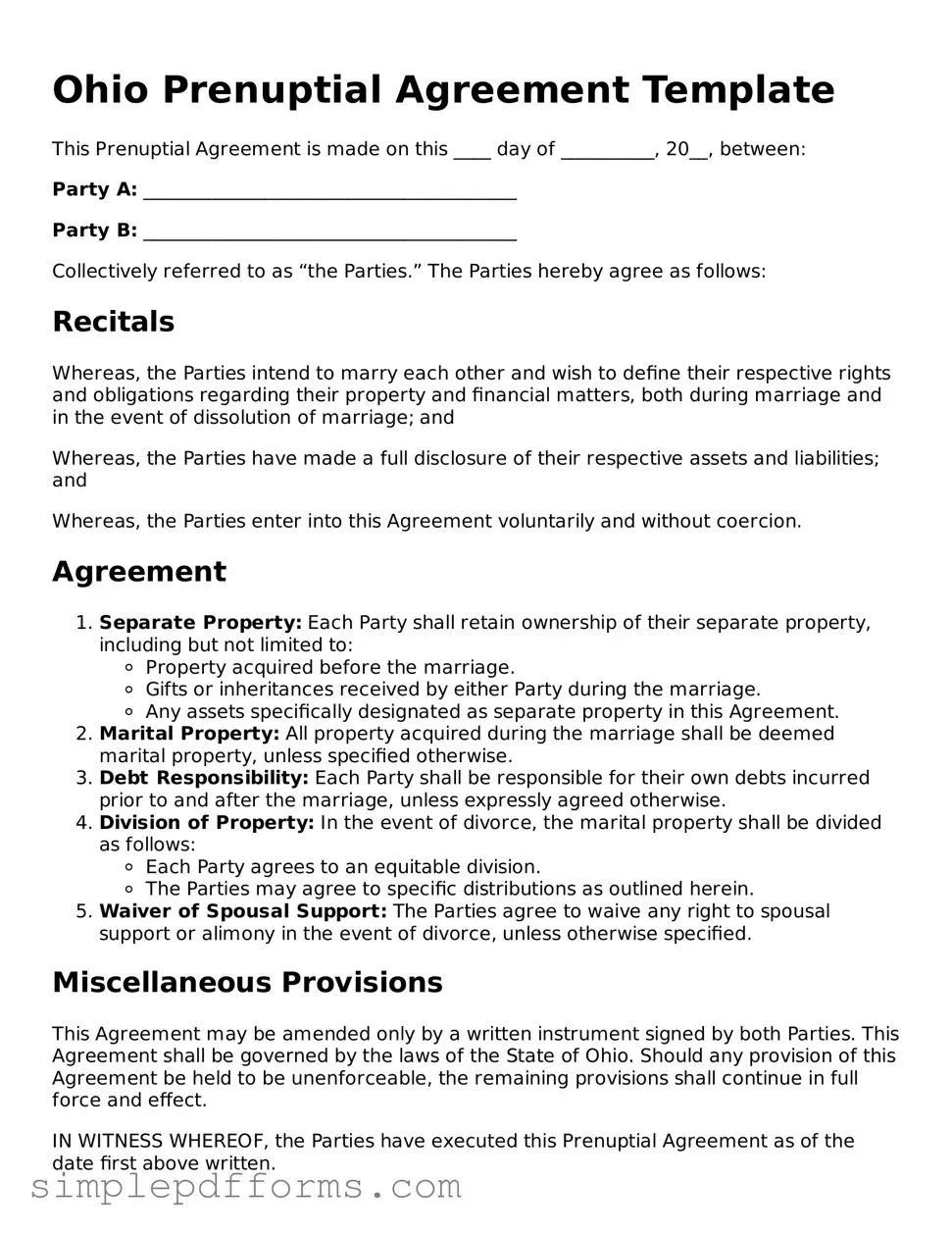Attorney-Verified Prenuptial Agreement Document for Ohio State
A prenuptial agreement, often referred to as a prenup, is a legal document created by two individuals before they marry, outlining the division of assets and responsibilities in the event of a divorce. In Ohio, this agreement can provide clarity and protection for both parties, ensuring that their rights and interests are safeguarded. Understanding the specifics of the Ohio Prenuptial Agreement form is crucial for anyone considering marriage in the state.
Open Prenuptial Agreement Editor Now

Attorney-Verified Prenuptial Agreement Document for Ohio State
Open Prenuptial Agreement Editor Now

Open Prenuptial Agreement Editor Now
or
Get Prenuptial Agreement PDF Form
Your form is waiting for completion
Complete Prenuptial Agreement online in minutes with ease.